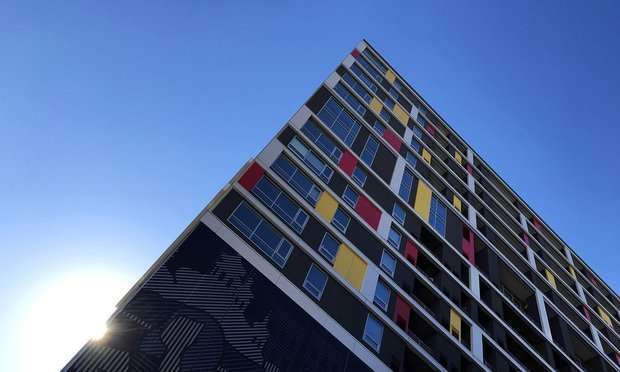
Limited multifamily construction will help sustain the sector even if demand cools.
Slowing construction will likely keep multifamily supply and demand in balance for some time despite fears of a recession, according to some analysts.
“Even if multifamily demand cools, limited multifamily construction will help sustain the sector,” a trio of economists from Moody’s write in a new report, adding that “housing substitutability” can transfer demand to the sector. Would-be owners of single-family homes are opting to rent instead of buy as the average property is now nearly 44% more expensive than in 2019—and that in turn is driving increased demand for multifamily units. It’s also being amplified by the rising short-term rate and the impact of those increases on mortgage rates, and Moody notes there are already signs of markets cooling in some of the cities where prices went up most quickly over the course of the pandemic.
“Although this may not lead to a widespread slashing of housing prices everywhere, housing price declines are a real possibility in the next few quarters or years depending on how severe and how long the next recession will be if there is one,” Moody’s report notes. “Multifamily rents, on the other hand, are generally slower to respond to rising interest rates and remain more stable. If the substitutability within housing matches the Great Recession’s strength, then multifamily rents may remain elevated for some time until single-family housing stabilizes. Based on the past few recessions, the effect on multifamily performance may not begin until near or after a recession ends.”
Low unemployment and a tight labor market are also likely to sustain multifamily demand—which was not the case in previous recessions (as in the 1980s, when unemployment topped 9%). But while household balance sheets are generally faring better than in previous downturns, disposable personal incomes are shrinking.
“As the multifamily and single-family home affordability crisis intensifies across more and more metros nationwide, this diminishing financial safety net is troubling, even for multifamily,” Moody notes. “Job losses or affordability issues could force some renters to find roommates or put off that move to single living.”
The Moody’s analysts also note that strengthened financial regulations “could be a blessing” for multifamily.
“Even if the Federal Reserve fails to engineer a soft landing this year or next, these rules will likely prevent the real estate market from sliding into a deep and long recession or suffering large aftershocks,” the trio writes. “While many single-family markets will likely see small to moderate prices decline in this situation, multifamily’s positive performance should hold up relatively longer, as in previous downturns. Overall, in a mild recessionary environment, we would expect only a moderate vacancy rate increase and rent growth to simply decelerate. A slight and short-lived dip into negative territory towards the end of the recession is possible, but a free fall is highly unlikely.”
Source:
What a Recession Could Mean for Multifamily
https://www.creconsult.net/market-trends/what-a-recession-could-mean-for-multifamily/







